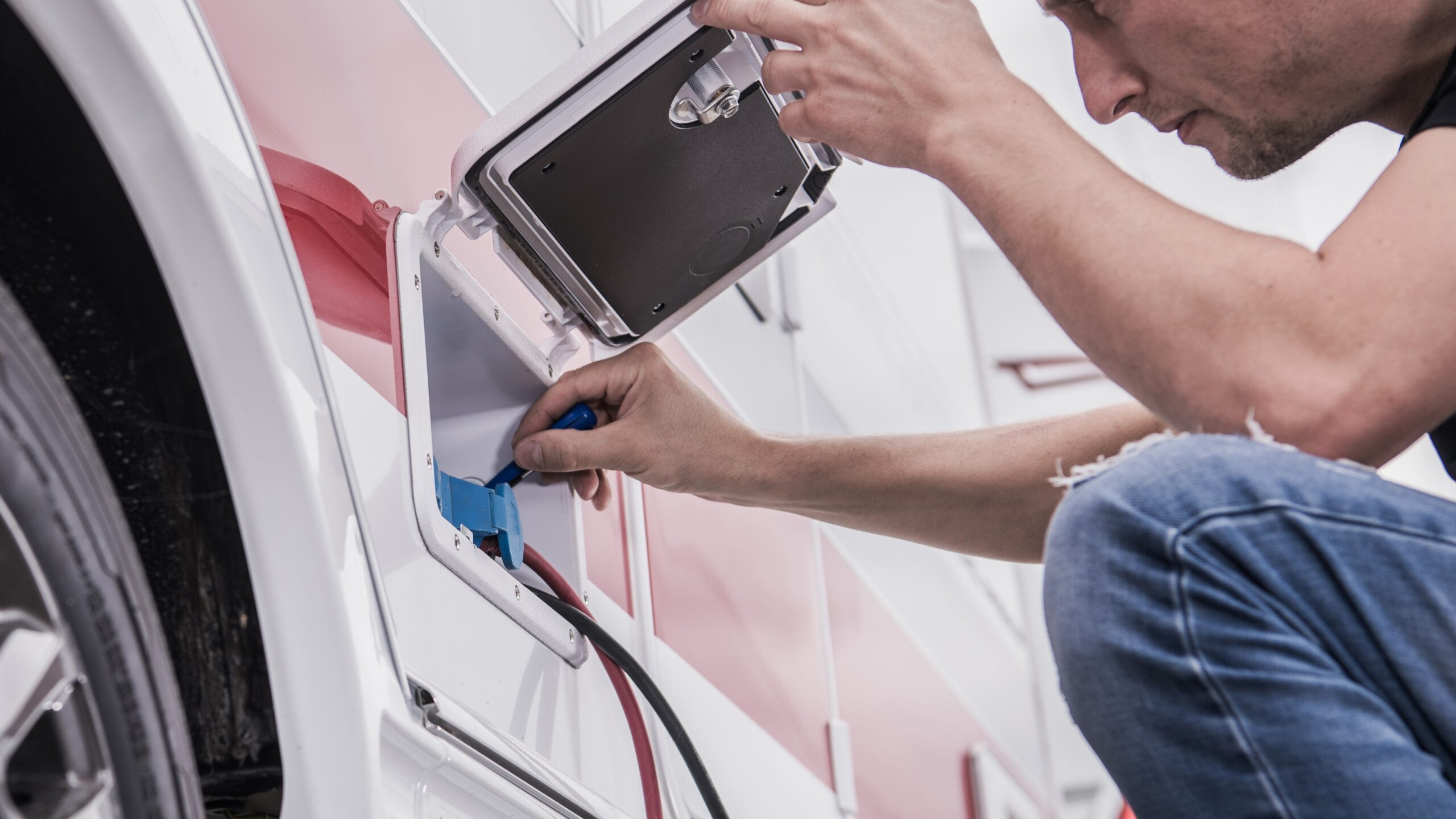
How Long Do RV Batteries Last?
Table of contents
RVs are the embodiment of adventure, offering the freedom to hit the open road and explore the great outdoors with all the comforts of home. But for this nomadic lifestyle to be as seamless and enjoyable as possible, understanding the inner workings of your RV is crucial. Among the many components that keep your RV running, the battery is often overlooked. In this guide, we’ll explore a critical question for any RV enthusiast: How long do RV batteries last? We’ll delve into the various types of RV batteries (AGM, Lithium, etc), the signs of a failing battery, ways to extend their lifespan, whether RV batteries need a cover, and when it’s time for a replacement.
Types of RV Batteries

Before we can determine how long RV batteries last, we need to understand the types of batteries commonly used in RVs. There are several options available, but three primary types are prevalent:
Lead-Acid Batteries
Lead-acid batteries are the most traditional and cost-effective option for RVs. They come in two main subtypes: flooded cell and gel cell batteries. These batteries are known for their reliability and can provide a steady source of power for your RV. However, they require regular maintenance, including checking water levels, and have a shorter lifespan compared to other types.
The lifespan of lead-acid batteries typically ranges from 3 to 7 years. Their longevity is influenced by factors such as usage, maintenance, and environmental conditions. In hot climates, for instance, these batteries tend to degrade faster.
AGM (Absorbent Glass Mat) Batteries
AGM batteries are a more modern and advanced option for RVs. They are known for their maintenance-free operation, as they don’t require regular water level checks and are highly resistant to vibration and shock. AGM batteries are a popular choice for RV enthusiasts who want a reliable and hassle-free power source.
AGM batteries generally last longer than lead-acid batteries, with a typical lifespan ranging from 5 to 8 years. Their longevity is also influenced by usage patterns and environmental factors.
Lithium Batteries
Lithium batteries are the cream of the crop when it comes to RV power sources. They are lightweight, have a high energy density, and can provide consistent power over a more extended period compared to lead-acid or AGM batteries. While they come at a higher initial cost, their longevity and performance make them an appealing choice for many RV owners.
Lithium batteries can last anywhere from 8 to 15 years or more. Their extended lifespan, coupled with their high energy output, makes them a wise investment for those planning long-term RV journeys.
Signs of a Failing RV Battery
No matter what type of RV battery you have, it’s important to be aware of the signs of a failing battery to prevent unexpected power issues during your adventures. Here are some common indicators:
Diminished Capacity and Power
As the battery nears the end of its useful life, you’ll notice a decrease in its capacity to hold and deliver power. This means that you may need to recharge it more frequently, and it won’t last as long as it once did. Lights may dim, and appliances may struggle to function correctly.
Difficulty Starting the RV
A failing battery may lead to difficulties starting your RV, especially in cold weather. If you find that your engine is sluggish or fails to start altogether, it could be a sign of a weak battery.
Sulfation and Corrosion
Sulfation occurs when lead-acid batteries are repeatedly undercharged or left in a discharged state. It results in the accumulation of sulfate crystals on the battery plates, reducing its capacity. Corrosion around the battery terminals is another visual clue of battery problems.
How to Extend the Lifespan of RV Batteries
While the type of battery you choose will have a significant impact on its lifespan, there are several measures you can take to extend the life of your RV battery, regardless of its type:
- Proper Maintenance: Regularly inspect and maintain your battery, including checking water levels (for lead-acid batteries), keeping the terminals clean, and ensuring proper ventilation in the battery compartment.
- Charge Control: Use a quality battery charger or maintainer to keep your battery fully charged when not in use. Over-discharging can significantly shorten the battery’s life.
- Temperature Control: Extreme temperatures, both hot and cold, can negatively impact battery life. Whenever possible, park your RV in a temperate environment.
- Reduced Parasitic Load: Minimize the power consumption from devices that run on the battery when the camper is not in use. Disconnect or turn off these devices when not needed.
Do RV Batteries Need a Cover?

One common question among RV owners is whether RV batteries need a cover. The answer is yes, they do. RV batteries are exposed to the elements, and a cover can provide essential protection. Battery covers are typically made from durable materials that shield the battery from rain, snow, and direct sunlight. These covers help prevent damage, corrosion, and temperature extremes that can degrade the battery’s lifespan.
Considerations for using a battery cover include selecting one that fits your battery size and type, ensuring it is easy to install and remove for maintenance, and keeping it secure during travel to prevent any accidents.
When to Replace RV Batteries?
Determining when to replace your RV battery is crucial for ensuring a continuous power supply during your travels. Here are some factors that influence the decision to replace an RV battery:
- Age: The age of the battery is one of the most critical factors. If your battery is nearing or has exceeded its expected lifespan, it’s time to consider a replacement.
- Performance: If you notice a significant decrease in battery capacity, difficulty starting your camper, or signs of sulfation and corrosion, it’s a strong indicator that a replacement is in order.
- Maintenance and Care: If you’ve been diligent with battery maintenance and care, you may be able to extend its life slightly. However, if these measures no longer yield improvements, replacement becomes more likely.
- Battery Type: The type of battery you have plays a role in determining when to replace it. Lithium batteries, for example, have a longer lifespan compared to lead-acid batteries.
In conclusion, understanding how long RV batteries last and the factors that impact their lifespan is vital for any RV enthusiast. The type you choose, the signs of a failing battery, maintenance practices, the use of a battery cover, and knowing when to replace the battery are all essential aspects of ensuring uninterrupted power for your adventures.
Experience the Nation’s #1 Skirting Solution!
For those looking to maximize their RV battery lifespan and overall RV experience, consider RV skirting. At Custom Skirting, we offer a top-notch solution to protect your RV from the elements and improve its energy efficiency. Our custom-tailored RV skirting, equipped with the exclusive “No-Snap, No-Gap” channel system, seals out water, snow, and wind more effectively than any other product on the market. With over a decade of testing and improvements, our skirting has proven itself in the harshest winter conditions. Don’t let your RV batteries suffer from extreme temperatures; get Custom Skirting today and experience the difference for yourself. Your batteries, and your adventures, will thank you.
